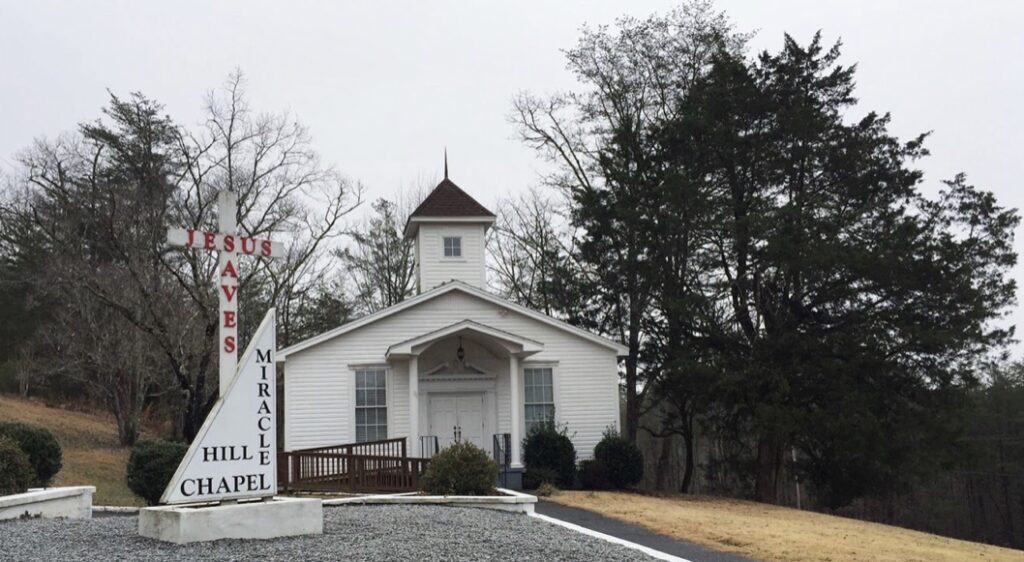GREENVILLE, S.C. [Yonat Shimron, RNS]— Soon after Sue Barrise moved to South Carolina from New Jersey, she found herself with a new home and the time and energy to foster a child.
On TV and on the radio, she heard ads about a foster care agency named Miracle Hill. The 82-year-old organization popped right up on her screen when she did an internet search for foster care agencies.
That seemed like the natural place to start her inquiry.
But when she called Miracle Hill Ministries to find out more about the application process, she did not get past the first question: What church do you attend?
When she said she attended St. Mary Magdalene Catholic Church, the call ended.
“I don’t remember the exact words,” Barrise said. “But it was pretty much, ‘Sorry, we can’t help you.’”
Barrise, a 63-year-old former schoolteacher, later got her foster care license through the state Department of Social Services. In 2016, she fostered a 1-year-old girl for a year.
But Miracle Hill’s question about where she worshipped left her puzzled.
“Does it matter which church?” she wondered.
For Miracle Hill, it does. The foster care agency accepts only Protestant, churchgoing people to its federally funded foster care program and requires participants to sign a statement of faith.
“We are an arm of the Protestant church,” Reid Lehman, Miracle Hill’s CEO, told Religion News Service recently. “We exist to be a mission arm of Protestant churches and to proclaim Protestant faith. It’s not a judgment or an exclusion. It’s simply that we’re going to be consistent with that.”
That exclusion has put Miracle Hill and South Carolina right in the middle of the latest religious freedom skirmish being waged across the country.
While many of the recent battles have tested the reach and teeth of municipal and state anti-discrimination ordinances over cake-bakers, florists and photographers refusing service on religious grounds, the Miracle Hill story has triggered a different question: Can faith-based social service providers who receive federal funds refuse to license people who don’t share their faith?
The Trump administration says yes.
Last week, the U.S. Department of Health and Human Services granted Miracle Hill and other faith-based foster care agencies in South Carolina an exemption to a regulation barring religious discrimination in federally funded foster care programs.
While civil rights organizations and non-Protestant religious groups are gearing up to test the response in the courts, at least one other state hopes to win an exemption similar to the one provided to South Carolina.
Texas adopted a state law that offers child welfare service providers an avenue to refuse service when it conflicts with the provider’s “sincerely held religious beliefs.”
Last month, Texas Attorney General Ken Paxton sent a letter to HHS asking that it repeal the regulation barring religious discrimination. If the regulation, put in place by President Obama at the end of his second term, is not repealed, Paxton asked HHS to grant Texas an exemption.
Lynn Johnson, assistant secretary for children and families at HHS, says the issue is a matter of religious freedom.
“The government should not be in the business of forcing foster care providers to close their doors because of their faith,” Johnson said in a statement announcing the South Carolina exemption. “Religious freedom is a fundamental human right.”
But in South Carolina, the exemption is already rankling Catholics and Jews who are religious minorities in a state where two-thirds of adults identify as Protestant, according to Pew Research.
The Rev. Dwight Longenecker, pastor of Our Lady of the Rosary Catholic Church in Greenville, said the government exemption is wrong.
“If they’re receiving tax funding for their services then they’re receiving money from me as a Catholic and therefore their services should be open to all,” said Longenecker.
Jews in Greenville are likewise upset.
“If this were reversed and a Jewish organization that took public money said it would not place children in Christian homes, I could hear across America the religious right screaming bloody murder,” said Rabbi Mathew Marko of Greenville’s Congregation Beth Israel.
The exemption is particularly disappointing, they say, because Miracle Hill does great work in the community.
A sprawling ministry that runs homeless shelters, thrift stores, drug-recovery programs and a foster care agency, Miracle Hill is the largest provider of care to the needy in the Upstate, the 10-county westernmost region of South Carolina, along the Interstate 85 corridor.
The ministry employs 352 people and has an annual budget of $17 million. While it takes no government money for its adult programs, four years ago the ministry began taking federal and state dollars for its foster care program.
[Editor’s Note: This was written by Yonat Shimron and originally published at Religious News Services]
[Editor’s Note: Title changed by P&P.]











